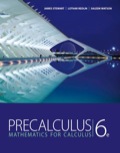
(a)
To find: the set
(a)
Answer to Problem 43E
Explanation of Solution
Given information:
Three sets are givenas
Formula used:
For any two or more sets, union of the sets gives the elements which are in the either one of the sets and the all elements of all sets. Common elements are considered once. Union is represented by the symbol
For any two or more sets, intersection of the sets gives the elements which are the only common elements of the sets. Intersection is represented by the symbol
Calculation:
Consider the given sets.
and
Now,
(b)
To find: the set
(b)
Answer to Problem 43E
Explanation of Solution
Given information:
Three sets are given as
Formula used:
For any two or more sets, union of the sets gives the elements which are in the either one of the sets and the all elements of all sets. Common elements are considered once. Union is represented by the symbol
For any two or more sets, intersection of the sets gives the elements which are the only common elements of the sets. Intersection is represented by the symbol
Calculation:
Consider the given sets.
and
Now,
Chapter 1 Solutions
EBK PRECALCULUS: MATHEMATICS FOR CALCUL
 Calculus: Early TranscendentalsCalculusISBN:9781285741550Author:James StewartPublisher:Cengage Learning
Calculus: Early TranscendentalsCalculusISBN:9781285741550Author:James StewartPublisher:Cengage Learning Thomas' Calculus (14th Edition)CalculusISBN:9780134438986Author:Joel R. Hass, Christopher E. Heil, Maurice D. WeirPublisher:PEARSON
Thomas' Calculus (14th Edition)CalculusISBN:9780134438986Author:Joel R. Hass, Christopher E. Heil, Maurice D. WeirPublisher:PEARSON Calculus: Early Transcendentals (3rd Edition)CalculusISBN:9780134763644Author:William L. Briggs, Lyle Cochran, Bernard Gillett, Eric SchulzPublisher:PEARSON
Calculus: Early Transcendentals (3rd Edition)CalculusISBN:9780134763644Author:William L. Briggs, Lyle Cochran, Bernard Gillett, Eric SchulzPublisher:PEARSON Calculus: Early TranscendentalsCalculusISBN:9781319050740Author:Jon Rogawski, Colin Adams, Robert FranzosaPublisher:W. H. Freeman
Calculus: Early TranscendentalsCalculusISBN:9781319050740Author:Jon Rogawski, Colin Adams, Robert FranzosaPublisher:W. H. Freeman
 Calculus: Early Transcendental FunctionsCalculusISBN:9781337552516Author:Ron Larson, Bruce H. EdwardsPublisher:Cengage Learning
Calculus: Early Transcendental FunctionsCalculusISBN:9781337552516Author:Ron Larson, Bruce H. EdwardsPublisher:Cengage Learning





